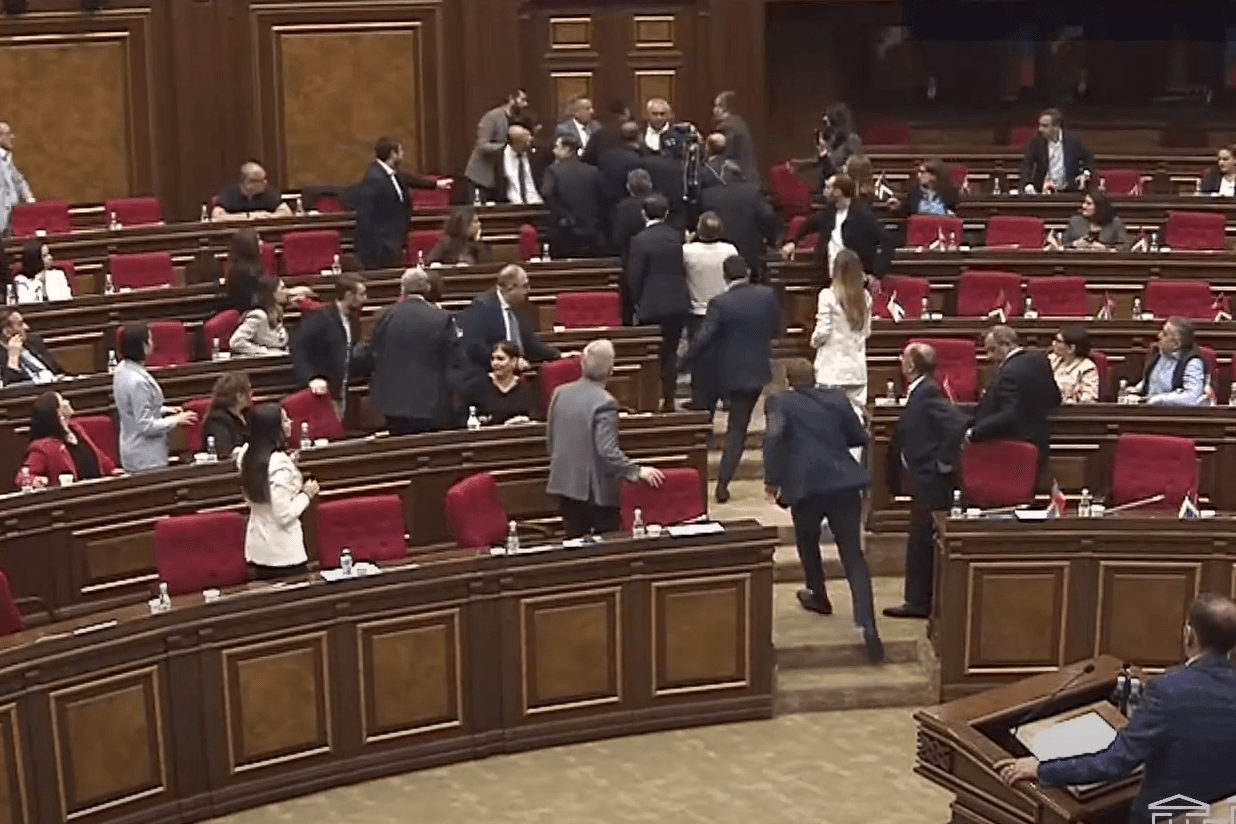
A fight occurred in the Armenian Parliament on Tuesday following the introduction of a bill by the opposition Armenia Alliance faction that broadens the spectrum for criminal culpability for denying the Armenian Genocide, as well as increasing the punishments.
Arguments about the bill and the wider context, which the ruling Civil Contract party contended was intended to be a political attack on the party and Prime Minister Nikol Pashinyan, quickly escalated into a physical fight.
Both sides later blamed each other for the brawl.
Members of Civil Contract, including parliamentary speaker Alen Simonyan, have claimed that such changes are unnecessary because under current law, denying the Armenian Genocide is already criminalised, with penalities including significant fines as well as a maximum prison sentence of four years.
However, the text of the law criminal code states that the criminal penalties should be applied if ‘the purpose of [the denial is for] provoking hatred, discrimination, or violence against a person or a group of persons’.
The amended bill would increase the scope of the criminal liability by stating that Armenian Genocide denial is a crime regardless of its purpose. It would also increase the prison sentence.
Commenting on the proposed legislation, opposition MP Christine Vardanyan wrote on social media after the fight that ‘We demand that denial and belittling of the ARMENIAN GENOCIDE be considered a criminal act, regardless of whether there is hatred attached to it or not’.
It was the latest recent political incident related to the genocide, with some in the opposition accusing Pashinyan of downplaying or spreading narratives that typically stem from Turkish narratives.
In January, Pashinyan caused outrage after questioning why the Armenian Genocide only became a public issue in 1950, stating that ‘we need to understand, what happened and why it happened. And how did we perceive it, through whom did we perceive it?’.
The Armenian Genocide, orchestrated by the Ottoman Empire between 1915 and 1923, resulted in the mass killings of nearly 1.5 million Armenians living in Western Armenia — modern-day eastern Turkey.
‘In this regard, I simply, as a scholar, want to emphasise that the Prime Minister does not have a command of the subject […] I would like to happily inform him that this topic has been studied’, Suren Manukyan, an expert on the Armenian Genocide and the former Deputy Director of the Genocide Museum in Yerevan, told RFE/RL at the time.
Manukyan added that if Pashinyan was interested in reading more about the topic, he could be provided with the respective materials, after which he would ‘perhaps understand what the Armenian Genocide was and why it occurred’.











